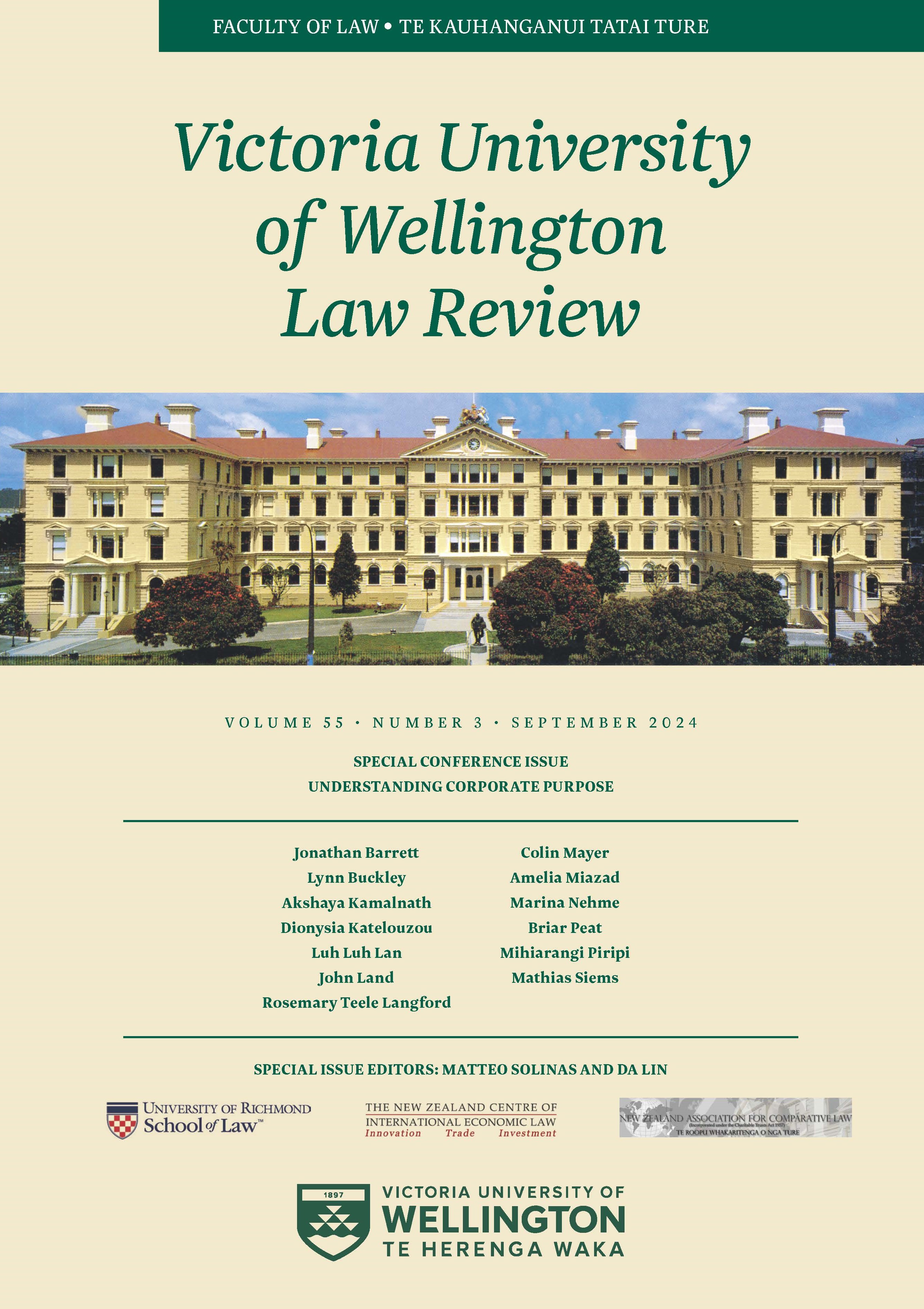Prosocial Corporate Purpose in Practice
DOI:
https://doi.org/10.26686/vuwlr.v55i3.9833Abstract
The debate over corporate purpose – whether corporations ought to exist solely to maximise shareholder value, serve broader societal interests or pursue both – has persisted throughout the history of corporate law. Despite its significance, the United States legal framework offers little clarity. The United States Constitution is silent on corporations, corporate law is primarily state-based and case law on corporate purpose remains limited. Despite this debate and the lack of clarity on what corporations ought to do, as a practical matter, the business judgement rule grants corporate directors and officers broad discretion to adopt a prosocial or stakeholder-oriented corporate purpose. Still, the mechanisms for implementing such an approach remain unclear.
This article shifts focus from the normative to the practical and asks: what corporate governance tools and strategies can companies use to operationalise a prosocial corporate purpose? It examines a range of strategies, including voluntary statements; private ordering mechanisms such as shareholder proposals; governance reforms like public interest board members and stakeholder-driven executive compensation; and legal structures such as public benefit corporations (PBCs). These tools vary in both enforceability and impact. Voluntary commitments often lack accountability but can catalyse more substantive reforms. The Delaware PBC provides a legally enforceable mandate to balance stakeholder interests, though only shareholders may enforce it. Board composition and incentive structures remain underutilised and debated.
While no single reform is a panacea or appropriate for all corporations, they represent a flexible and evolving toolkit for embedding prosocial goals into corporate governance.
Downloads
Downloads
Published
How to Cite
Issue
Section
License
Authors retain copyright in their work published in the Victoria University of Wellington Law Review.


